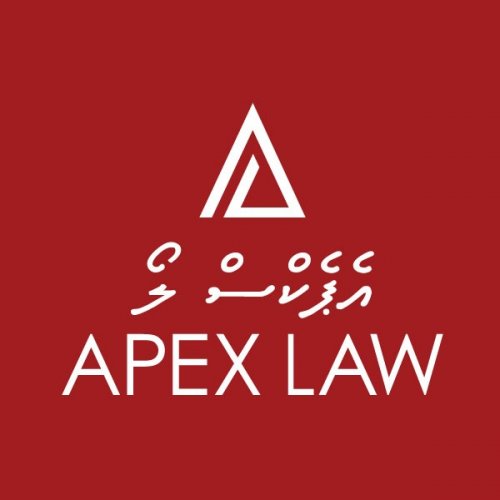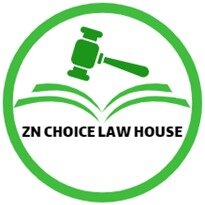Best Education Law Lawyers in Maldives
Share your needs with us, get contacted by law firms.
Free. Takes 2 min.
Or refine your search by selecting a city:
List of the best lawyers in Maldives
About Education Law in Maldives
Education Law in the Maldives encompasses the regulations, policies, and legal issues governing the operation and delivery of educational services. This field of law addresses the rights and responsibilities of students, teachers, and educational institutions. The Maldives’ Education Act establishes guidelines to ensure equitable and quality education for all, promoting both individual and societal growth. The law covers various aspects, including curriculum standards, teacher qualifications, student rights, and the administrative processes for schools and higher education institutions.
Why You May Need a Lawyer
There are several situations where individuals or institutions may require legal assistance in Education Law in the Maldives:
- Disputes Over Student Rights: Legal assistance might be necessary if there are conflicts concerning student admission, suspension, expulsion, or discrimination.
- Teacher and Staff Employment Issues: Legal counsel can be beneficial in navigating employment contract disputes, wrongful termination, or workplace discrimination issues.
- Institutional Compliance: Schools and educational bodies may need help ensuring compliance with educational standards and government regulations.
- Special Education Needs: Assistance is often required to navigate the rights and resources available for students with special needs.
- Curriculum and Policy Development: Legal expertise might be needed to develop or amend educational programs and policies that comply with national guidelines.
Local Laws Overview
The Maldives Education Act serves as the cornerstone of educational law in the nation, detailing the following critical aspects:
- Equal Access: All children are entitled to access quality education without discrimination.
- Curriculum Standards: Nationally mandated education programs ensure a cohesive learning experience across the archipelago.
- Qualitative Measures: Regular assessments are conducted to maintain and elevate the quality of education.
- Institutional Licensing: Educational institutions must possess valid licenses and adhere strictly to procedural guidelines.
- Rights of Individuals: Legal frameworks establish and protect the rights of educators and students.
- Dispute Resolution: Procedures are laid out for resolving conflicts that arise within educational institutions.
Frequently Asked Questions
What are the age requirements for compulsory education in the Maldives?
The Maldives mandates compulsory education for children aged 6 to 16 years, ensuring basic education for all.
How do I handle a situation where my child faces discrimination at school?
If your child faces discrimination, you can file a complaint with the school administration and seek legal guidance if necessary for further action.
What should I do if I disagree with a child's suspension from school?
First, discuss the suspension with school officials. If unresolved, seeking advice from an educational lawyer can help explore further options.
Are there laws protecting teachers' rights in the workplace?
Yes, Maldives Education Law encompasses various rights, including fair employment practices, anti-discrimination policies, and workplace protections for teachers.
How are private educational institutions regulated in the Maldives?
Private institutions must adhere to national education standards and obtain appropriate licensing from relevant governmental bodies.
Can I homeschool my child in the Maldives?
Homeschooling is permitted, provided the education meets national curriculum standards and receives approval from the Ministry of Education.
What resources are available for special education in the Maldives?
The Maldives has provisions for special education, including dedicated programs and resources to support children with disabilities.
What is the process for opening a new school in the Maldives?
Opening a new school involves multiple steps, including forming a governing body, obtaining a license, and complying with educational standards and practices.
How can schools ensure compliance with national standards?
Schools can ensure compliance by regularly reviewing and updating policies according to Ministry of Education guidelines and seeking legal counsel when needed.
Are there legal avenues to address bullying in schools?
Yes, legal strategies are available to address bullying in schools. It's imperative to report incidents to school authorities and seek legal recourse if necessary.
Additional Resources
For more information and assistance, the following resources can be helpful:
- Ministry of Education: The primary government body overseeing educational standards and policies.
- Legal Aid Centers: Offer guidance and support for those encountering legal challenges in the education sector.
- Non-Governmental Organizations: Entities such as Human Rights Commission of Maldives can provide additional support and advocacy for educational rights.
Next Steps
If you require legal assistance in Education Law, consider taking the following steps:
- Identify the Issue: Clearly define the educational legal issue you are facing.
- Consult with Experts: Reach out to educational consultants or legal professionals specializing in education law for advice.
- Gather Documentation: Collect all relevant documents and evidence related to your case or inquiry.
- Seek Legal Representation: Contact a lawyer with expertise in Maldives Education Law for representation or formal guidance.
- Follow Legal Procedures: Adhere to advised legal actions and remain informed on the progress and strategies employed in your case.
Lawzana helps you find the best lawyers and law firms in Maldives through a curated and pre-screened list of qualified legal professionals. Our platform offers rankings and detailed profiles of attorneys and law firms, allowing you to compare based on practice areas, including Education Law, experience, and client feedback.
Each profile includes a description of the firm's areas of practice, client reviews, team members and partners, year of establishment, spoken languages, office locations, contact information, social media presence, and any published articles or resources. Most firms on our platform speak English and are experienced in both local and international legal matters.
Get a quote from top-rated law firms in Maldives — quickly, securely, and without unnecessary hassle.
Disclaimer:
The information provided on this page is for general informational purposes only and does not constitute legal advice. While we strive to ensure the accuracy and relevance of the content, legal information may change over time, and interpretations of the law can vary. You should always consult with a qualified legal professional for advice specific to your situation.
We disclaim all liability for actions taken or not taken based on the content of this page. If you believe any information is incorrect or outdated, please contact us, and we will review and update it where appropriate.
Browse education law law firms by city in Maldives
Refine your search by selecting a city.









